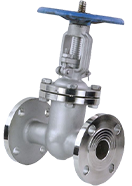Understanding the Functionality and Importance of Control Valves in Industrial Applications
Understanding Control Valves Essential Components in Fluid Regulation
Control valves are critical components within various industrial systems where the regulation of fluid flow is necessary. They are designed to control the flow rate, pressure, temperature, and liquid level, thereby playing a vital role in process automation. These valves are prevalent in sectors such as oil and gas, water treatment, pharmaceuticals, and power generation.
Working Principle of Control Valves
At its core, a control valve adjusts the flow of fluids through a system by varying the size of the flow passage. This adjustment is achieved through the movement of a valve element, which can take different forms, including a plug, ball, or butterfly disc. The position of this element can be manipulated by actuators that respond to signals from a control system. The two primary types of actuators used in control valves are pneumatic and electric actuators. Pneumatic actuators use compressed air, while electric actuators rely on electric motors for operation.
The control valve's performance is critically influenced by its design and the type of valve trim (the internal components that direct flow). Common types of control valves include globe valves, ball valves, and butterfly valves, each having distinct advantages depending on the application requirements. For instance, globe valves are widely known for their excellent throttling capabilities, while ball valves offer quick shut-off and low-pressure drop characteristics.
Importance of Control Valves in Industry
Control valves play a significant role in regulating processes that require precise management of fluid dynamics. For example, in the chemical processing industry, maintaining the correct flow rates and pressures is crucial for safety and product quality. If a control valve fails or operates outside its intended parameters, it can lead to process instability, resulting in costly downtime or hazardous situations.
control valve

Moreover, in systems such as HVAC (heating, ventilation, and air conditioning), control valves help maintain desired temperature levels by modulating the flow of water or refrigerants
. By ensuring that these systems operate efficiently, control valves contribute to energy savings and improved operational efficiency.Technologies Enhancing Control Valve Performance
Recent advancements in technology have significantly enhanced the capabilities of control valves. For instance, digital valve controllers (DVCs) equipped with smart technology have emerged, providing real-time data on valve performance and operational conditions. These devices facilitate predictive maintenance, allowing operators to identify potential failures before they disrupt operations.
Furthermore, the integration of control valve systems with distributed control systems (DCS) enables operators to monitor and control processes with greater accuracy and ease. The data gathered from these systems can be analyzed to optimize performance and improve process efficiency.
Selecting the Right Control Valve
When choosing a control valve, several factors must be considered, including the type of fluid being handled, pressure and temperature ranges, the required flow characteristics, and the specific application. Consulting with manufacturers and utilizing selection software can aid in finding the most appropriate valve for the application.
In conclusion, control valves are essential for the efficient management of fluid processes in numerous industrial sectors. By understanding their operation, importance, and the latest technological advancements, industries can enhance safety, improve efficiency, and maintain compliance with regulatory standards. As technology continues to evolve, the capabilities of control valves will likely expand, offering even greater precision and reliability in fluid control applications.
-
Breakthrough in Domestic Low Temperature Valve Technology in ChinaNewsAug.18,2025
-
From Machinery to Intelligent Brain: The Digital Transformation Wave of the Valve IndustryNewsAug.18,2025
-
PCVEXPO 2025NewsAug.18,2025
-
The Key to Fluid Control: Exploring the Advantages of Ball Valves in Industrial SystemsNewsJul.09,2025
-
The Versatile World of 1, 2, and 3 Piece Ball ValvesNewsJul.09,2025
-
Stainless Steel Ball Valves: The Ideal Choice for Efficient Flow ControlNewsJul.09,2025
-
Optimizing Fluid Control with Ball Float ValvesNewsJul.09,2025




